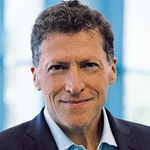
Arnie Weissmann
Bhutan prime minister Tshering Tobgay had just returned from a walk in Central Park before meeting me in New York this week. That walk would influence the answer to one of my questions to him.
I began our interview by telling Tobgay that when I had spoken to Palau's president, Surangel Whipps Jr., last month, he had said that of all the countries in the world, Bhutan had the type of tourism he wanted for his country. Whipps had characterized it as "low density and upscale."
Bhutan and Palau have much in common: both are small, environmentally minded countries that are also viewed as expensive to visit. In addition to the cost of hotels, guides and transportation, Bhutan levies a Sustainability Development Fee of $100 per person, per night.
Tobgay has described Bhutan as a "high-value" destination. I asked him whether he equated "high value" with "high cost."
He began by referencing his walk through Central Park. "It cost nothing, but it was of extremely high value."
And he offered another example: "I would have loved to have met Anthony Bourdain. He didn't seek out Michelin-star restaurants. He'd eat street food and enjoy it thoroughly. He derived the most value, the highest possible value, for a pittance."
How much a trip to Bhutan costs, he added, "is up to the individual. If you want to stay in a luxury resort, you can pay $2,500 or more per night. Or, you can get a hotel for $150 to $200."
Tobgay recognizes the positive economic impact of tourism ("Prosperity is important to sustain our culture and environment.") but doesn't embrace associated economic models if they don't place humanity at their core. "We in the tourism ecosystem -- I'm not calling it a business or an industry -- must foster connection, because if it is just about commerce, we are ruining the opportunity to bring the world together."
I would have loved to have met Anthony Bourdain. He didn't seek out Michelin-star restaurants. He'd eat street food and enjoy it thoroughly. He derived the most value, the highest possible value, for a pittance.– Bhutan prime minister Tshering Tobgay
I mentioned that Palau's Whipps had also identified a country, the Maldives, whose tourism development he views as anathema to what he hopes for his nation. I asked Tobgay if he, likewise, could identify destinations he saw as inspirational and ones that epitomize what he hopes to avoid.
He began with a philosophical prelude. "The importance of tourism is that it's a connector of people, countries and cultures. Businesses can't do that, yet tourism is largely driven by market forces and commercial interests," he said. "Businesses are trying to convince you to consume all the time and therefore risk losing that connection. The important thing is to connect to people; it's what Anthony Bourdain did. The world has always benefited from, and desperately needs, more connections between people, cultures and lands.
"Where has tourism gone right? Where has it gone wrong? It's straightforward: You look at where connections happen and where they don't," he continued. "Show me a place where local residents don't want tourists, and I'll show you a place where tourism is failing. It could be that Venetians are unhappy because their city is overcrowded. It could be the native people in Australia don't want people climbing Uluru. If the indigenous people, the residents, don't want to welcome tourists, you might want to rethink your policy.
"On the other hand, show me where tourists are not regarded as burdens and intruders but are received as guests, with open hearts and open minds by the local community, and I'll show you a place where tourism is succeeding."
Were there specific practices that might foster both the positive and negative outcomes he described?
"We naturally want to welcome guests. If my home can accommodate only five people, I may be delighted to squeeze in eight, but if you give me 50, I will not have a home."
It is not, he said, simply a matter of what in the travel industry is known as "carrying capacity." More important, he said, is "welcoming capacity."
"If you are operating beyond your welcoming capacity, whether it's infrastructure or something to do with resident's social habits, you're not going to be able to connect. Hosts won't be happy, and tourists are not going to achieve what they seek."
Tobgay pegs Bhutan's "welcoming capacity" at 300,000 annually. "Today we're operating at about 160,000 to 170,000. When we reach 300,000, we will need to have a discussion: Can we really accommodate more? If so, we might increase the numbers. If not, we can control the numbers by raising the Sustainable Development Fee, which goes to protecting our environment, free education and free healthcare."
It's interesting to me that two leaders of small countries that are considered "developing" -- Bhutan's GDP ranks 172 and Palau's 208 among world economies -- are more tuned into the human benefits and natural protection of their countries than more economically powerful countries, which tend to focus on visitation numbers and economic lift. Marketers for developed countries tout the human connection, but these small countries focus on delivering it.